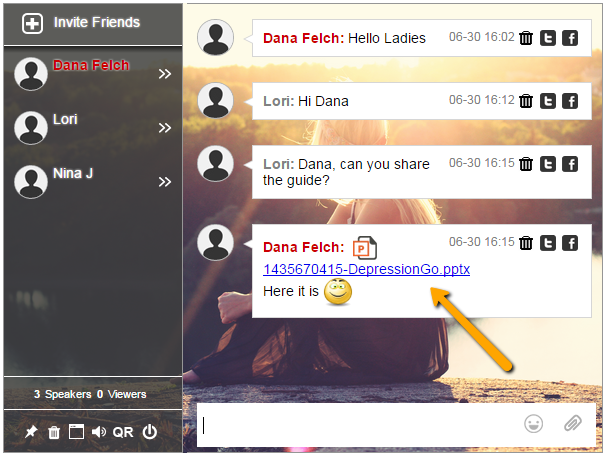Talking with a therapist through mental health chat is becoming more common, though for many people the idea is probably still a strange one.
Traditionally, when an individual is seeking to counsel, they must set up an appointment at a therapy office. Sometimes it may not be possible to see a therapist or psychologist for several days or weeks. Some potential clients may not have a close family or friend group, so they have no one else to talk to. For individuals who are really struggling with mental health issues, like feelings of depression or extreme anxiety, waiting for the appointment could be agonizing. They may make poor choices and decisions in the meantime, decisions that could potentially include self-harm.
For all of these reasons and many more, a greater number of psychologists and therapists are moving their services online. Through mental health chat, they are able to provide counseling and therapy to clients at anytime, from anywhere, at a moment’s notice.
From the Therapy Couch to Mental Health Chat
People seek out counseling for a variety of reasons. While some individuals may have a lifelong history of mental illness, others may be going through a particularly traumatic event. They may need help developing coping mechanisms and strategies. Some individuals may be having marital or family problems and want to know how to improve their relationships. Other individuals may wake up every day with crippling depression, making it almost impossible to get through their day.
Regardless of the reason why people seek counseling and therapy, it generally is a very private affair to them. As a psychologist, it is your responsibility to maintain a strict privacy policy and develop a trusting relationship with clients. The goal is for clients to know they can open up to you and generally feel comfortable.
For some, the idea of traveling to a therapist’s office may make them uncomfortable and prevent them from seeking help. However, if you were able to offer in-home counseling services via a chatroom, they may be more interested.
Clients would be able to simply login to the mental health chat, possibly even anonymously, to seek help. After connecting with a therapist or counselor, they would begin developing a relationship with you, hopefully growing more comfortable and open over time. They may want to continue setting up regular meetings and sessions with you, without ever having to leave their home.
Benefits of an At-Home Practice
It may initially seem odd to work from home as a psychologist or therapist. However, around 20% of Americans are working from home in today’s time. There is no reason why the psychology and counseling field cannot also move to a work from home environment.

As a field that relies heavily on developing relationships with clients and interpersonal communication, it may initially seem impossible to do so without actually sitting in the same room.
However, with today’s advanced chatroom technologies, it would still be possible to hear people’s voices and see their faces as they were speaking. While you may initially start a conversation via normal chat, you could transition to in-chat calling and in-chat video-calling as well to get to know clients better.
Video calls would also allow you to replicate some of the more standard in-office counseling experience. You would be able to see client’s body language and facial expressions to gauge their emotions and feelings. If you working with more than one person, like a couple or family members, you would be able to see how they interacted with one another.
Making the Transition
From the counselor’s point of view, working from home may also provide you with more flexibility. You could truly set your own schedule, spend more time with your family, and be able to work from the comfort and convenience of your own home.
Having an at-home practice may also help you cut back on costs, as you would not have to rent an office space. You could potentially offer counseling services at a reduced rate and make them more accessible to all people.
If you are considering the transition from a traditional counseling and therapy practice to a virtual one, there are several online counseling services that employ psychologists and therapists. Customer service reps work to connect clients to new counselors around the clock. Working with one of these services may be appealing, as it would be a relatively simple transition process.
Another option would be to begin to offer virtual counseling services in addition to standard in-person counseling. Some or your existing clients may be interested in this idea. It would allow them to continue going to counseling from anywhere. They may go on vacation, be out of town for work, or move to a different city. Throughout it all, they would be able to continue talking with the same psychologist.
You may also be able to solicit new clients by offering a non-traditional virtual counseling service. These individuals may have always wondered about counseling, but been too nervous to walk into an actual therapy office. The online option may be the tipping point for them to seek help.
Get your own chat in here.
